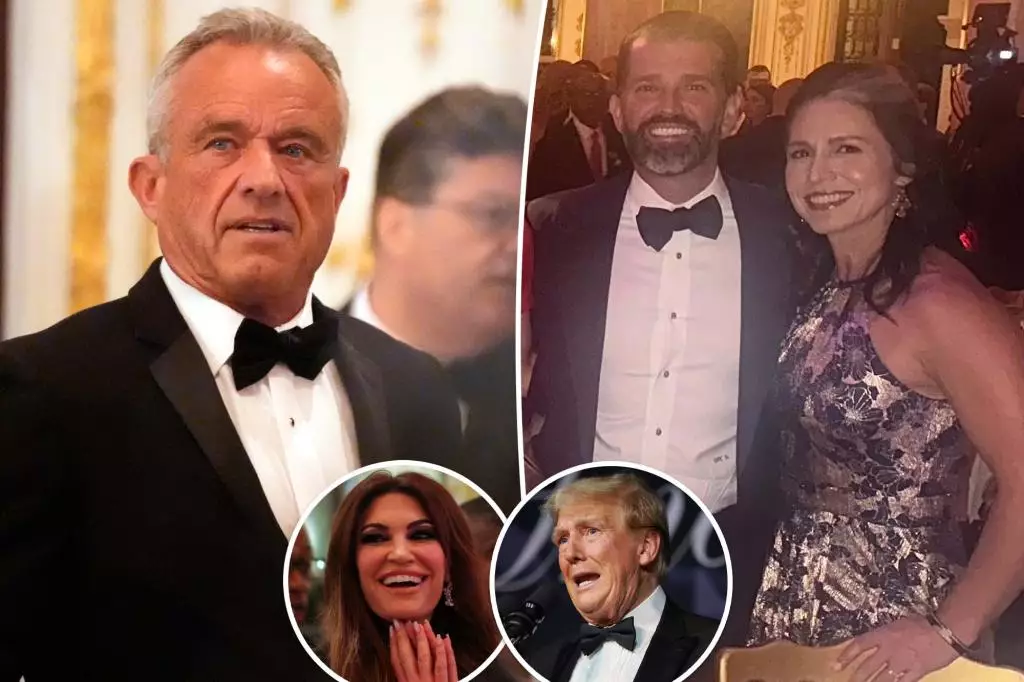The political arena often finds itself interwoven with elements of drama and spectacle, and a recent gala at Mar-a-Lago exemplifies this vibrant mix. With figures such as Robert F. Kennedy Jr. and Rep. Tulsi Gabbard, both notable for their controversial yet impactful political journeys, appearing alongside prominent personalities in Trump’s inner circle, the event spotlighted both personal connections and political ambitions amidst a celebratory atmosphere.
The celebration at Mar-a-Lago, hosted in honor of the America First Policy Institute gala, featured a notable assemblage of influential individuals. Among them was Donald Trump Jr. and his fiancée Kimberly Guilfoyle, as well as Tucker Carlson, showcasing a blend of media presence and political lineage that amplifies the event’s magnitude. Kennedy’s nomination for Secretary of Health and Human Services follows an extraordinary path of activism, while Gabbard’s transition from a Democrat to a Republican has sparked conversations among political analysts regarding her impact on the party’s dynamics.
Adding to the political drama, the presence of Donald Trump himself, invited to speak at the gala and introduced by none other than Hollywood icon Sylvester Stallone, reinforces the marriage between celebrity culture and political narratives in today’s environment. Stallone’s declaration of Trump as “a second George Washington” not only imbues a sense of nostalgia but also potentially polarizes audiences who may view the comparison as both flattering and overly ambitious.
Trump’s choices for cabinet positions underscore significant shifts within the Republican party, particularly in the context of Gabbard and Kennedy’s individual followings. Gabbard, with her distinct perspectives on foreign policy and civil liberties, presents an interesting alignment with Trump’s agenda, suggesting a potential strategy to attract a more diverse voter base. Similarly, Kennedy’s legacy and health policy focus may play a critical role in shaping national conversations around public health—an area underscored by the challenges presented during and following the COVID-19 pandemic.
Trump’s announcement of additional appointments, including North Dakota Gov. Doug Burgum as his pick for Interior Secretary, hints at a broader, strategic approach aimed at solidifying support across different states and demographics. Each nomination reflects an evolving political landscape that mirrors Trump’s influence and the shifting ideologies within the party.
As the evening drew to a close, the combination of laughter, political networking, and strategic maneuvering highlighted the intertwined nature of American politics and social engagement. The gala serves as a reminder of how the political elite often find common ground in social settings, crafting relationships that could yield significant outcomes for future governance.
Ultimately, the laughter and camaraderie captured at the Mar-a-Lago event tell a story beyond just policy decisions; they highlight a moment in time when personal relationships and political aspirations converge within the glamorous yet charged landscape of American political life. What remains to be seen is how these connections will ultimately play out in the larger framework of Trump’s vision for his administration and the impact on the Republican party.

